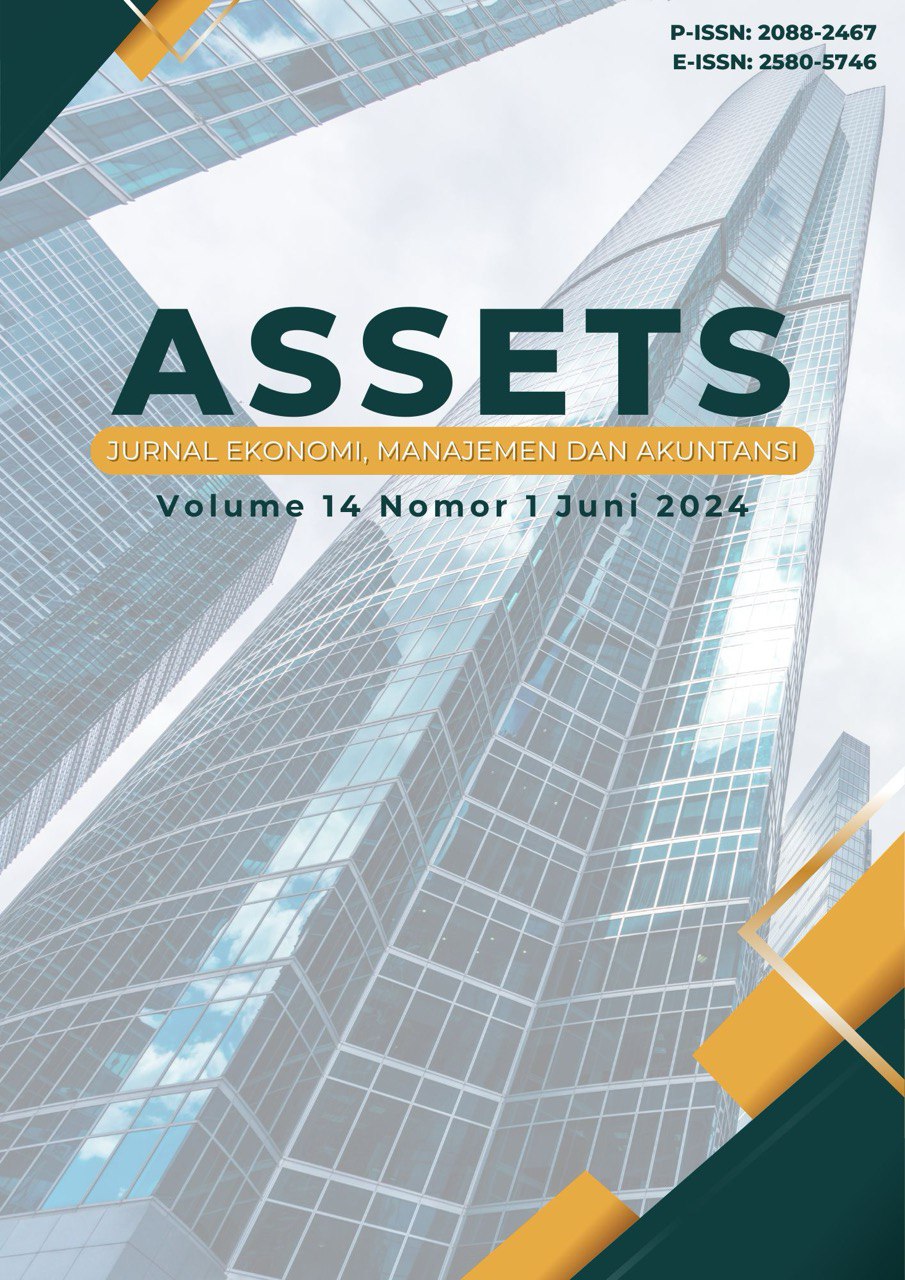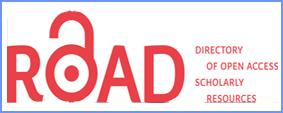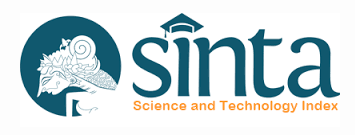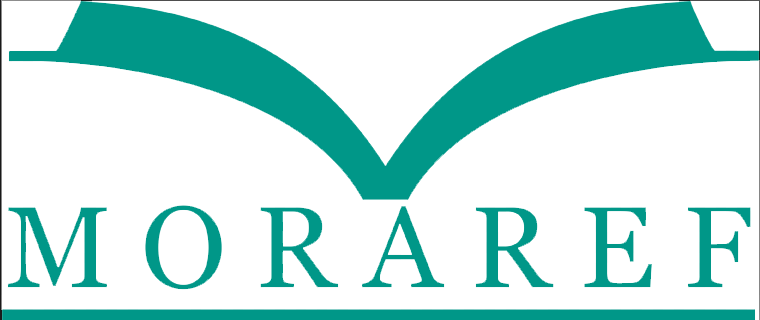THE EFFECT OF DIGITAL SKILLS ON EMPLOYEE PERFORMANCE MEDIATED BY INNOVATIVE BEHAVIOR IN DIGITAL COMPANIES IN JABABEKA CIKARANG INDUSTRIAL ESTATE
Abstract
This study aims to analyze the effect of digital skills on employee performance mediated by innovative behavior in digital companies in the Jababeka Industrial Estate. The population used in this study are employees of digital companies in the JABABEKA Cikarang industrial area. to determine the sample size, this study used the probality sampling method simple random sampling, so that 85 respondents were obtained. This quantitative research uses Partial Least Square (PLS) as a data analysis technique. The results showed that digital skills have a significant positive effect on employee performance. innovative behavior has a significant positive effect on employee performance. digital skills have a significant positive effect on innovative behavior. digital skills have a significant positive effect on employee performance through the mediating role of innovative behavior. This research provides important implications for digital companies in designing digital skills development programs and encouraging innovative behavior to improve employee performance.
References
Asbari, M., Bernarto, I., Pramono, R., Purwanto, A., Hidayat, D., Sopa, A., Alamsyah, V. U., Senjaya, P., Fayzhall, M., & Mustofa. (2020). The effect of work-family conflict on job satisfaction and performance: A study of Indonesian female employees. International Journal of Advanced Science and Technology, 29(3), 6724–6748.
Astuti, T. P., Sitawati, R., & Tukijan. (2019). Pengaruh Kreativitas dan Perilaku Inovatif Terhadap Kinerja Karyawan Dengan Kepuasan Kerja Sebagai Variabel Mediasi (Studi Pada Hotel Pandanaran Semarang). Jurnal Ekonomi Manajemen Dan Akuntansi, 47, 53–64.
Baharrudin, S., Ludfiana, M., Santoso, B., Putra, E. M., & Pratiwi, R. (2021). Pengaruh Kompetensi Digital Dan Keterikatan SDM Terhadap Kinerja DISPERMADES Provinsi Jawa Tengah. Prosiding Seminar Nasional Manajemen Dan Akuntansi STIE Semarang (SENMAS), 1–9. http://eprosiding.stiesemarang.ac.id/index.php/SNMAS/article/view/12/12
Carvalho, L. P. De, Poleto, T., Ramos, C. C., Rodrigues, F. D. A., Diogho, V., Carvalho, H. De, Celso, T., & Nepomuceno, C. (2023). administrative sciences Predictors of Digital Competence of Public University Employees and the Impact on Innovative Work Behavior.
Dhanes Sahistya. (2022). Memperkuat SDM Lewat Peningkatan Kemampuan Digital. Katadata.Co.Id. https://katadata.co.id/infografik/62345a6826266/memperkuat-sdm-lewat-peningkatan-kemampuan-digital
Elisnawati, E., Mas’ud, M., & Selong, A. (2023). Pengaruh Kompetensi Digital, Motivasi Kerja dan Disiplin Kerja Terhadap Kinerja Pegawai Pada Badan Pengembangan Sumber Daya Manusia (Bpsdm) Provinsi Sulawesi Selatan. Journal on Education, 5(3), 8308–8323. https://doi.org/10.31004/joe.v5i3.1619
Entrepreneurs, T. B. (2014). Journal of Management. https://doi.org/10.1177/0149206312463937
Gallardo-echenique, E. E., Marqués-molías, L., Bullen, M., & Strijbos, J. (2023). International Review of Research in Open and Distributed Learning Let ’ s Talk about Digital Learners in the Digital Era Let ’ s Talk about Digital Learners in the Digital Era.
Hadi, S., Putra, A. R., & Mardikaningsih, R. (2020). Pengaruh Perilaku Inovatif Dan Keterlibatan Kerja Terhadap Kinerja Karyawan. Jurnal Baruna Horizon, 3(1), 186–197. https://doi.org/10.52310/jbhorizon.v3i1.38
Helsper, E. J., & Reisdorf, B. C. (2017). The emergence of a “digital underclass” in Great Britain and Sweden: Changing reasons for digital exclusion. New Media and Society, 19(8), 1253–1270. https://doi.org/10.1177/1461444816634676
Koopmans, L. (2014). Measuring individual work performance. In Measuring Individual Work Performance.
Korzilius, H., Bücker, J. J. L. E., & Beerlage, S. (2017). Multiculturalism and innovative work behavior: The mediating role of cultural intelligence. International Journal of Intercultural Relations, 56, 13–24. https://doi.org/10.1016/j.ijintrel.2016.11.001
Laar, E. Van, Deursen, A. J. A. M. Van, Dijk, J. A. G. M. Van, & Haan, J. De. (2018). Telematics and Informatics 21st-century digital skills instrument aimed at working professionals : Conceptual development and empirical validation. Telematics and Informatics, 35(8), 2184–2200. https://doi.org/10.1016/j.tele.2018.08.006
Lestari, S., & Afifah, D. (2021). Pengaruh Disiplin Kerja Dan Pelatihan Kerja Terhadap Kinerja Karyawan. Kinerja, 3(1), 93–110. https://doi.org/10.34005/kinerja.v3i1.1279
Marguna, A. M., & Sangiasseri. (2020). Pengaruh Kompetensi Digital (e-Skills) Terhadap Kinerja Pustakawan di UPT Perpustakaan Universitas Hasanuddin. Jupiter, XVII(2), 104–117.
Muhamad Nabilah. (2023). Indeks Literasi Digital Indonesia Terus Meningkat sampai 2023. Databoks.Katadata.Co.Id. https://databoks.katadata.co.id/datapublish/preview/2023/12/14/indeks-literasi-digital-indonesia-terus-meningkat-sampai-2023
Muis, M. R., Jufrizen, J., & Fahmi, M. (2018). Pengaruh Budaya Organisasi Dan Komitmen Organisasi Terhadap Kinerja Karyawan. Jesya (Jurnal Ekonomi & Ekonomi Syariah), 1(1), 9–25. https://doi.org/10.36778/jesya.v1i1.7
Na-nan, K., Chaiprasit, K., & Pukkeeree, P. (2017). Influences of workplace environment factors on employees ’ training transfer. https://doi.org/10.1108/ICT-02-2017-0010
Nambisan, S., Wright, M., Feldman, M., & Western, C. (2019). The digital transformation of innovation and entrepreneurship : Progress , challenges and key themes. Research Policy, 48(8), 103773. https://doi.org/10.1016/j.respol.2019.03.018
Parviainen, P., & Teppola, S. (2017). Tackling the digitalization challenge : how to benefit from digitalization in practice. 5(1), 63–77. https://doi.org/10.12821/ijispm050104
Sadat, P. A., Handayani, S., & Kurniawan, M. (2020). Disiplin Kerja dan Motivasi Terhadap Kinerja Karyawan. Inovator, 9(1), 23. https://doi.org/10.32832/inovator.v9i1.3014
Sailer, M., Stadler, M., Schultz-Pernice, F., Franke, U., Schöffmann, C., Paniotova, V., Husagic, L., & Fischer, F. (2021). Technology-related teaching skills and attitudes: Validation of a scenario-based self-assessment instrument for teachers. Computers in Human Behavior, 115(May 2020). https://doi.org/10.1016/j.chb.2020.106625
Santoso, H., Abdinagoro, S. B., & Arief, M. (2019). Management Science Letters. 9, 2305–2314. https://doi.org/10.5267/j.msl.2019.7.024
Soto-acosta, P., & Soto-acosta, P. (2020). COVID-19 Pandemic : Shifting Digital Transformation to a High-Speed Gear COVID-19 Pandemic : Shifting Digital Transformation to a High-Speed Gear. Information Systems Management, 37(4), 260–266. https://doi.org/10.1080/10580530.2020.1814461
Spiegelaere, S. De, Gyes, G. Van, & Hootegem, G. Van. (2016). Not All Autonomy is the Same . Different Dimensions of Job Autonomy and Their Relation to Work Engagement & Innovative Work Behavior. 0(0), 1–13. https://doi.org/10.1002/hfm
Copyright (c) 2024 Assets : Jurnal Ekonomi, Manajemen dan Akuntansi

This work is licensed under a Creative Commons Attribution-NonCommercial-ShareAlike 4.0 International License.










